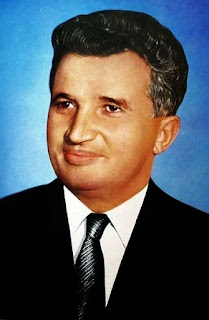The latest nomad nation of Europe
VLACHS (Romanians) : THE LATEST NOMADIC ETHNIC GROUP IN EUROPE
The vast majority of Romanian population preserved its nomadic lifestyle and heritage until the end of 16th century. They were known as late - nomadic people in medieval chronicles. The first Romanian Vlach churches were built only around the turn of the 13th & 14th century. No known Vlach architecture existed before that period. The Romanian literacy and their earliest chronicles appeared only in the early 17th century (Grigore Ureche's chronicle). USE Google books! The Google Books results in English language.
Let's see the opinion of academic historian scholars about this topic:
Heiko Pleines, Sabine Fischer (2009): Crises and Conflicts in Post-socialist Societies, The Role of Ethnic, Political and Social Identities - PAGE: 65
"Vlachs were nomadic shepherds ( Romanians ) who were part of another barbaric tribe and did not exhibit any signs of Roman civilisation or culture."
B. Fowkes (2002) : Ethnicity and Ethnic Conflict in the Post-Communist World -PAGE: 12
"That curious minority, the Vlachs of the Balkans, for example, were on the face of it Romanians ('Wallachians') but in fact the name was also applied to Slavs who shared the same pastoral, nomadic life as the Romanian shepherds."
Google Books LINK: https://books.google.com/books?id=bRZaCwAAQBAJ&pg=PA12
Norman Berdichevsky (2004): Nations, Language and Citizenship -page: 181.
"The “true Romanians” are held to be interlopers who were nomadic shepherds that migrated into Transylvania from the ... then transferred to “Wallachia,” the traditional core area of the Romanian state located east and south of Transylvania."
Google Books LINK: https://books.google.com/books?id=_q14xoaXj1UC&pg=PA181
Victor Roudometof (2002): Collective Memory, National Identity, and Ethnic Conflict: Greece, Bulgaria, and the Macedonian Question - PAGE: 128
"The Vlachs are mainly pastoral nomads dispersed among the states of Yugoslavia, Bulgaria, Greece, Albania, and Romania. Since they are Orthodox Christians, they have mostly become part of the predominantly Eastern Orthodox ..."
Google Books LINK: https://books.google.com/books?id=Xoww453NVQMC&pg=PA128
Roumen Daskalov, ?Alexander Vezenkov - 2015: Entangled Histories of the Balkans - Volume Three: Shared Pasts, Disputed Legacies PAGE: 309
"Zlatarski adds an a priori statement that the very thought of an uprising could occur only to Bulgarian local notables or voivods, not to the nomadic Vlachs, who he says were at a low level of cultural development"
Google Books LINK: https://books.google.com/books?id=WDRzBwAAQBAJ&pg=PA309
Rob Humphreys, Susie Lunt, Tim Nollen - 2002 : Rough Guide to the Czech & Slovak Republics - Page 408
"Wallachian culture As far as anybody can make out, the Wallachs or Vlachs were semi-nomadic sheep and goat farmers who settled the mountainous areas of eastern Moravia and western Slovakia in the fifteenth century."
Google Books LINK: https://books.google.com/books?id=kpEc8ltyqnUC&pg=PA408
Marek Koter, Krystian Heffner - 1999 : Multicultural regions and cities - Page 164
"Nomadic shepherds from the Balkan Peninsula (Wallachians) were moving along the bow of the Carpathians in search of new pastures. "
Google Books LINK: https://books.google.com/books?id=YXwUAQAAIAAJ&q=%22Nomadic+shepherds+from+the+Balkan+Peninsula%22
Marek S. Szczepañski Wydawn. Uniwersytetu Œl¹skiego, Jan 1, 1997 - Ethnic Minorities & Ethnic Majority: Sociological Studies of Ethnic Relations in Poland -PAGE: 32
"They were just the Wallachian people (nomadic tribes from the present Romania) from who contemporary Lemks descended; it should be testified by both the elements of material culture, similarities of customs and languages"
Google Books LINK: https://books.google.com/books?id=108MAQAAMAAJ&q=%22They+were+just+the+Wallachian+people%22
Normal J. G. Pounds - 1976 - : An Historical Geography of Europe 450 B.C.-A.D. 1330, -PAGE: 251
"The chief importance of the Vlachs lies, however, in the possible relationship to the Romanians. ... Ages, crossed the Danube into Walachia and continued their pastoral and semi-nomadic life in Transylvania and the Carpathian Mountains"
Jane Perry Clark Carey, Andrew Galbraith Carey : The Web of Modern Greek Politics - page 73
"shepherds and nomadic herdsmen, wandering through the Balkans and the north of Greece. On their early migrations they gave the Vlach name to various districts, including the province of Wallachia in present-day Romania"
Google Books LINK: https://books.google.com/books?id=Rbzly8S0mxcC&q=%22shepherds+and+nomadic+herdsmen,+wandering+through+the+Balkans+and+the+north+of+Greece%22
However
the most interesting is the personal experiences of the 11th century
Byzantine chronicler Kekaumenos (the author of the famous Strategicon) regarding to the
lifestyle of Vlachs. Nomad Vlachs climbing down from the mountains,
regularly attacked and plundered the vilages of the civilised/settled
agricultural population in the area.
"at the time the most despised people, of the lowest morality,” who spread throughout the Balkans and “plundered and harassed the peaceful population."
| Roumen Daskalov, Alexander Vezenkov : (BRILL, 2015) Entangled Histories of the Balkans - Volume Three: Shared Pasts, Disputed Legacies PAGE: 309 |
Google Books Link : https://books.google.com/books?id=WDRzBwAAQBAJ&pg=PA309
About chronicler Kekaumenos: https://en.wikipedia.org/wiki/Kekaumenos
The Aroanian cousins of Romanians still preserved the lifestyle of late-medieval early modern period Romanians:








Their level of development and culture is just like in Africa. Savage barbaric semi-asian ciganino orthodox intruders.
ReplyDelete